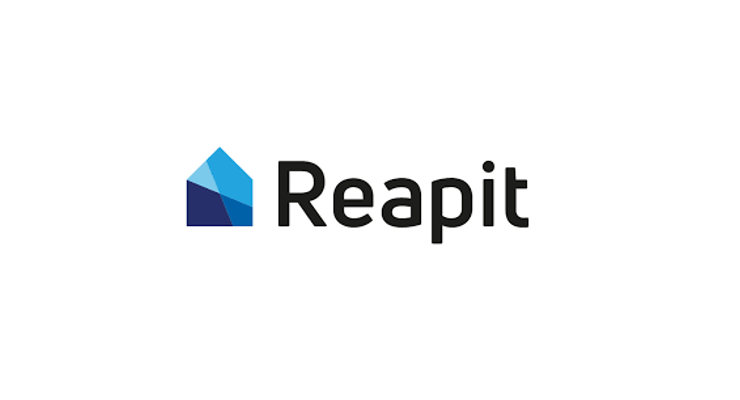Interview: Mark Hayward and his market forecasts
Residential Expert with Mark Hayward – May 2022
With last week’s relatively uneventful Queen’s speech in the rear-view mirror, now’s the time to assess the current state of the property market and predict what might be round the corner. We spoke to former chief executive of Propertymark and Just Move In ambassador, Mark Hayward, who will be providing his insights here on a regular basis, about the road ahead.
Q: The economist Fred Harrison believes that we’re currently three-quarters of the way through an 18-year property cycle and about to experience another boom. Do you agree?
Mark: Ah yes, the 18-year cycle theory. It’s certainly an interesting one, and it’s received a lot of recent press attention, but on this occasion, I can’t see the market rising at a rapid rate in the immediate future considering the broader economic challenges we’re facing.
Although high asking prices are still being met, the experienced agents that I speak to don’t think the good times will last for long. Indeed, there are already signs of a slight slow down. For example, there are fewer properties selling for more than the asking price and we’re no longer seeing so many ‘best offers’ for rentals.
Any sustained boom from here would require a flood of new buyers entering the market. And I can’t see that with the current economic uncertainty. And let’s not forget that landlords are currently smothered by legislation and tax, too.
The big question, therefore, is not ‘for how much longer will prices go up rapidly’. Rather, everybody is asking how much longer today’s already inflated prices will be sustainable for. I guess we’ll find out.
Q: Some experts take a different view and argue that we’re actually heading for a crash. What do you make of these catastrophic scenarios?
Mark: Thankfully, I don’t subscribe to those theories, either. We always seem to get sensationalist headlines predicting boom or bust but the truth will probably be somewhere in between.
My personal view is that we’re likely to see a period of ‘cooling’, where the market isn’t as buoyant as it has been, and prices might even decline a bit, but I doubt that we’re on the edge of a disastrous precipice because demand is still outstripping supply. Basic economics tells us that this will continue to prop up prices. For a crash to happen, we’d need to see a sudden influx of stock that rectifies this imbalance.
Will we see a sudden increase in the supply of houses? I don’t think so. It will be hard for the nation’s developers to suddenly build an extra hundred thousand homes every year, especially as the price of materials is so high at the moment.
Meanwhile, I can’t see a flood of repossessions like we have in previous crashes for two reasons (a) because 60% of people are on fixed rate mortgages so interest rate rises won’t affect them, and (b) because unemployment is not particularly high; if anything we have underemployment at the current time. Consequently, the old dynamics and indicators that might have precipitated crashes in the past simply aren’t present this time.
Q: So you think a ‘cooling’ is the most likely outcome?
Mark: That’s right. It’s hard to make firm predictions, as the market has defied expectations before, but that’s what I expect to see. At the end of the day, the market is driven by sentiment. It’s how people feel that counts. And up until now they’ve felt pretty confident in the market and happy to move home.
However, as the cost of living crisis bites harder, and the war in Ukraine drags on, people will start to feel less confident. Although the war obviously isn’t on our soil, it still feeds into a narrative of pessimism, which affects how people feel. Eventually, with all the economic worries, people will naturally start to worry about affordability – and that’s when the market should cool.
The fear is that less people will be prepared to pay a premium for properties when they see living costs going up. And it will probably have an even bigger impact on the rental sector because renters spend, on average, about 60% of their take home pay on rent. Those with a mortgage, on the other hand, spend about 40%.
Q: At least the pandemic now seems to be behind us. In what ways do you think the pandemic might have a lasting impact on the property sector?
Mark: It’s interesting because the ‘race for space’ is happening in other countries, too – in France and Canada, for example. People do seem to want more space, including quality outdoor space, more than they used to. It’s all about improving their quality of life at home.
The pandemic has also obviously increased the demand for homes with working spaces. This won’t be the case for everyone, as some bosses don’t seem to trust home working whereas others do. However, it certainly seems that more hybrid working is here to stay. And this, obviously, will somewhat reduce demand for properties really close to jobs. Commuter towns will still be popular though.
Of course, some of the big changes we’ll see in the sector in the coming years will have nothing to do with the pandemic. For example, there’s definitely a need to shorten the time between making an offer and exchange. Maybe new technologies can help to streamline the process?
Actually, one good thing about the pandemic is that it’s actually increased our familiarity with new technologies and our willingness to embrace them. People are now more selective, and better at using technology when choosing a new home. Meanwhile, agents have been able to operate with fewer staff and fewer offices because of technology, too.
Q: Finally, we’ve just spent a lot of time today predicting what might happen over the next few months and years. Yet predictions frequently turn out to be wrong. Why is this?
Mark: It’s because forecasters often try to be too scientific. As mentioned earlier, the market is actually driven by human sentiment, and it’s sometimes hard to predict how people are going to react and feel to different circumstances. What’s more, different organisations and different analysts make their calculations in different ways and rely on different indicators. Therefore, it shouldn’t be surprising that they come to different conclusions.
We shouldn’t forget, however, that we don’t often read about safer, shades-of-grey predictions in the media. They’re quite boring. Editors want stories about big booms and desperate crashes to engage their readers. So perhaps the majority of experts don’t get it wrong as much as the public thinks. It’s just that they only ever hear about the hugely optimistic or pessimistic viewpoints.
Q: Thanks for your time, Mark. That wraps up your first Residential Expert fireside chat. How was it for you?
Mark: A pleasure. Thanks guys.
This interview was carried out by Just Move In.









